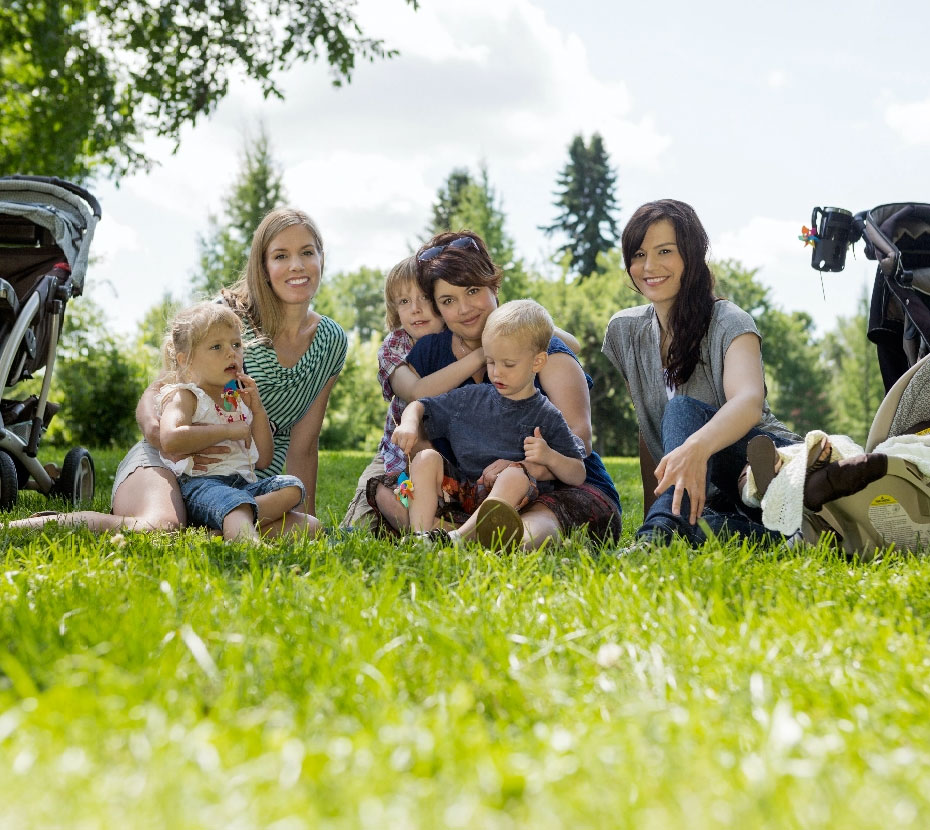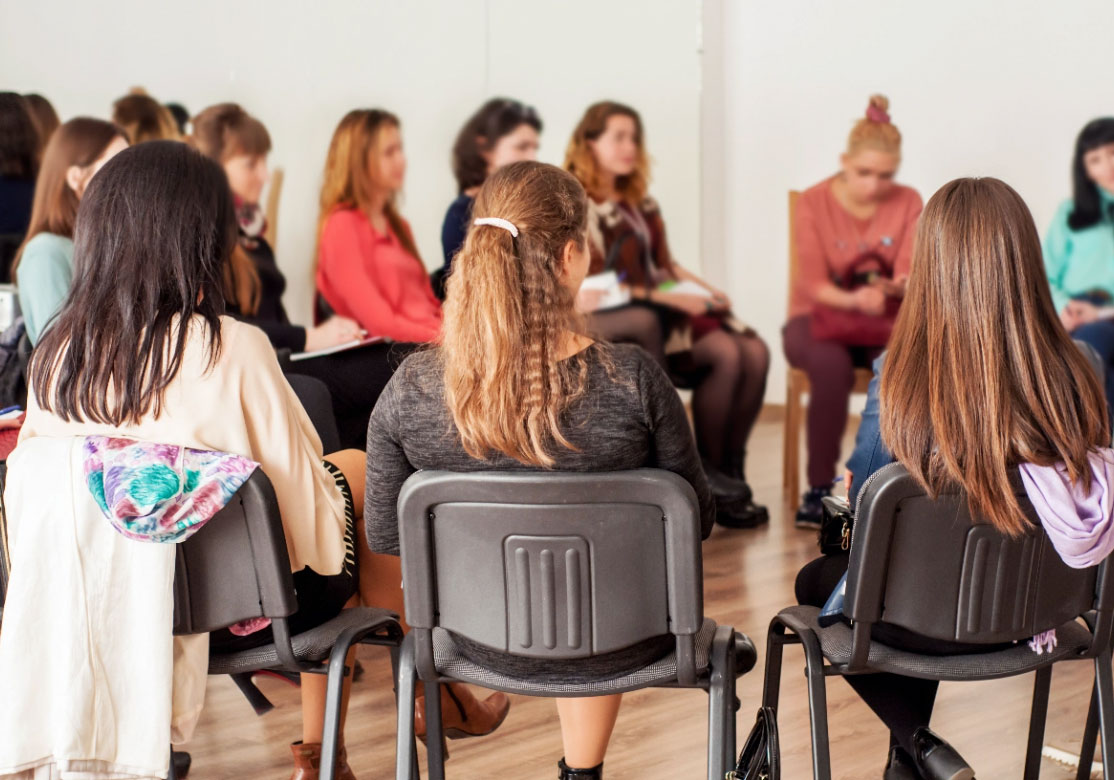
I’ve learned that all parents need support. It takes more than one or two people to raise a child. As they say, it takes a village to raise a child. With the added stress of postpartum depression, I knew I needed even more support. I now understand that I couldn’t have gotten better without the support of family and friends. My public health nurse called it ‘building a circle of support’. She said my ‘circle’ might be big or small but it needed to include people I could depend on and trust.
A neighbour told me how she’d gone to a support group at the Pacific Post Partum Support Society and how it had helped her. I decided I was ready to join this group. The groups are run by trained group facilitators, many of which had experienced depression during their own pregnancy or postpartum period and recovered. The facilitators are very knowledgeable about postpartum depression and mental health issues, and what can help support new mothers during pregnancy and the postpartum period. All facilitators have a personal understanding about what it is like to be a mother-to-be or a new mother.

“I used the the group to cry and talk about my feelings of anger, sadness and anxiety. It was the only place I could talk about these things because I was afraid to tell anyone else that I was depressed. I thought they would think I was weird or, worse, that I didn’t love my child.”
L.B., Richmond

“I learned I don’t have to do everything in one day. It’s okay to leave chores for another day, especially when you attend to the needs of your children all day long.”
B.B., West Vancouver
The group was made up of women at different stages of the journey. When I looked at the women in their early phases, I realized how far I had come. It was comforting to see women in the later phases that had been through it, laughing and relating to other women like me.
None of us had to explain ourselves. It was more like sharing our stories. I could look across the circle and hear my story when others were telling theirs. I no longer felt alone. I heard other women share their pain and successes and it gave me hope. The group facilitator shared stories of what had helped her and also helped women she had been in contact with. I felt validated and acknowledged for what I had been going through and how much I had been doing to get well. I also learned about some practical tools to help me get through each day.
At one of the sessions, the facilitator brought a ‘wheel’ which showed that depression has many dimensions with many contributing factors. She also showed us a diagram that divided the signs of depression into four categories: thoughts, body responses, behaviours and emotions. These pictures helped me to understand what was going on inside me. It also helped me understand how the different things I had felt and thought were connected.
I’ve learned that one of the main reasons many new mothers struggle is that there is no time to do basic things to take care of ourselves. Caring for a baby and small children, and trying to run a household requires a great deal of time and energy. It was no wonder I found it hard to take care of my baby and others when I did not have time to care for myself. One friend likened this to a jug of water. She talked about mothers spending all day pouring water from the jug to support their family, even when the jug was empty. To be able to keep pouring the ‘water’ needed to support a family, the jug needs to be refilled. Looking after yourself is the way to refill the jug.
The facilitator explained that taking better care of myself was an important first step in helping to lessen depression. She gave me a self-test to fill out. She said it might give me some ideas about areas where I can work on taking care of myself. She also gave me handouts with ideas that help and some practical suggestions that have helped other women.
An easy way to remember the 5 most important areas of taking care of yourself (self-care) is by using the word ‘NESTS’. A book called ‘Coping with depression during pregnancy and following the birth: A cognitive behaviour therapy-based self-management guide for women’ uses this word to represent tips to care for yourself:
Nutrition
Exercise
Sleep and Rest
Time for Yourself
Support
I learned that taking better care of myself might mean asking for help from friends, family or neighbours, or possibly hiring a doula or homemaker. Part of the process was to find out for myself what was going to support me the best. The facilitator told us about common things that hold new mothers back from getting the support they need (especially when depressed). She also told us that we can be our own worst enemies, thinking only of the negatives and never the positives. This type of thinking can stop us from asking for the help we need. She gave us examples of negative thinking traps and challenged us to work on replacing these thoughts with more helpful ones.
For me, I realized getting practical help to help me with my baby was as important as getting emotional support. My friend told me about a website called [website no longer exists] which provides links to nannies for BC mothers. She also told me about a website to find a doula. These people, along with friends and family, helped me to create my ‘circle of support’.
One of the things the facilitator told our group was that it is important we be gentle with ourselves. When we are constantly giving to others, we are often longing to have someone take care of us. She reminded us that it’s important to not rush things and when we felt stronger we could look at doing more. She reminded us to always check in with ourselves about what was possible to do on a given day.
Pacific Post Partum Support Society is located on the traditional, ancestral, unceded, and occupied territories of the xʷməθkʷiy̓əm (Musqueam), Sḵwx̱wú7mesh (Squamish), səlilwətaʔɬ (Tsleil-Waututh), and Stó:lō First Nations.